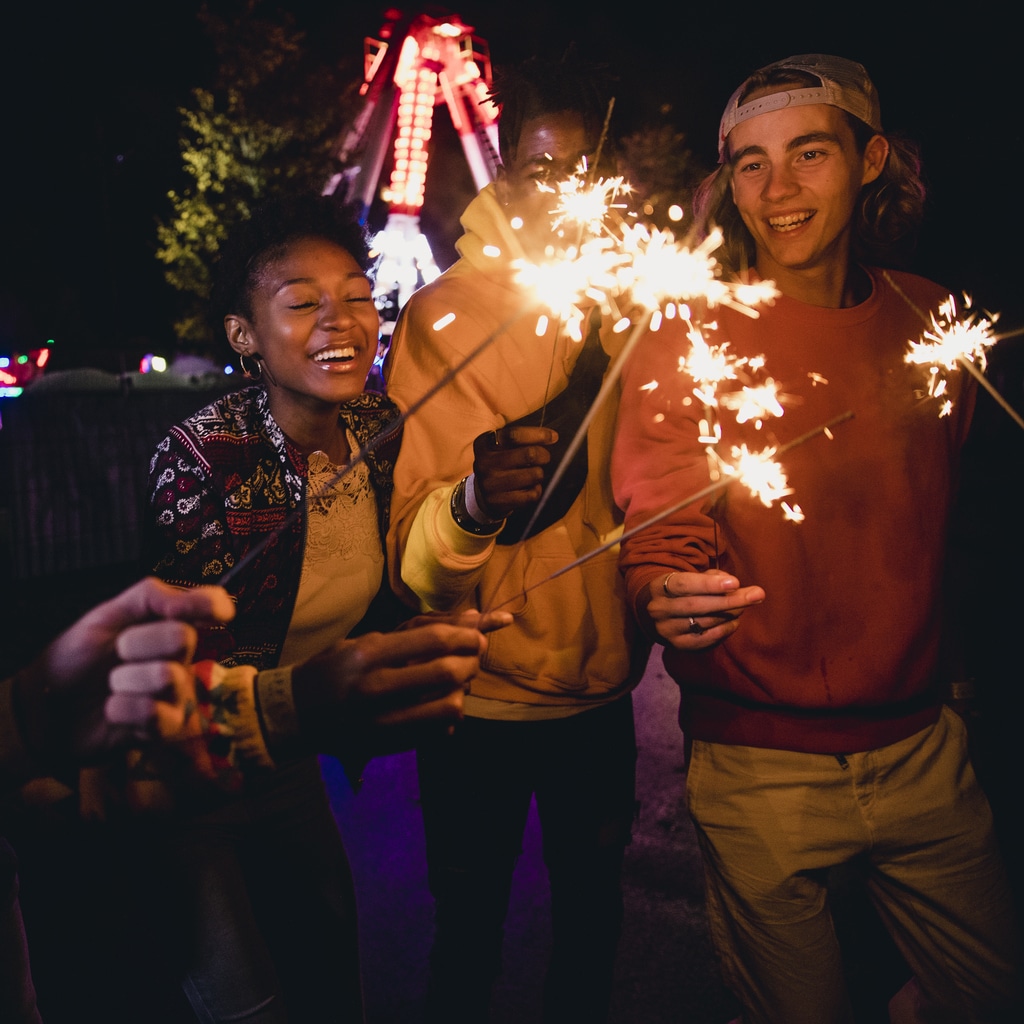The 4th of July is right around the corner. Whether you head to a big fireworks show in Nara Park or set off a few sparklers and small poppers in your neighborhood, it’s crucial to implement hearing protection practices.
How Do We Hear?

When you hear noise, like traffic or conversation, the sound travels through the outer and middle ear to the cochlea in the inner ear. The cochlea is a spiral-shaped, fluid-filled structure lined with thousands of tiny hair cells. When sound vibrations enter the cochlea, the fluid moves, stimulating the hair cells. The hair cells generate an electrical signal that travels along the auditory nerve to the brain, where it is understood as sound.
How Do Fireworks Affect Your Hearing?
Noise is measured in decibels (dB). For example, a typical conversation sits at 60-70 dB. Loud noise (above 85 dB for an extended period) damages our hearing by overworking the hair cells in the cochlea—causing them to bend or die.
Fireworks range from 140 to 160 dB—well above the threshold for hearing damage. While fireworks only come a few times a year, their high decibel levels leave you and your loved ones open to immediate hearing damage. Luckily, there are a few cautionary tips you can employ to protect your hearing while enjoying dazzling 4th of July fireworks.
Tips To Protect Your Hearing
Approximately 12.5% of children aged 6-19 and 17% of adults aged 20-69 have suffered permanent hearing damage from loud noise exposure. Noise exposure is one of the most preventable causes of hearing loss. A few precautions you can take to safeguard your hearing this year include:
- Wear hearing protection. Earplugs and earmuffs soften the impact of sound as it enters your ears, lowering your risk of hearing damage. Grab earplugs for your family before heading to this year’s 4th of July celebrations.
- Keep your distance. Maintaining a safe distance from fireworks protects your hearing and helps prevent other potential physical injuries. Stand at least 500 feet away from noise sources, farther where possible, to reduce the risk of ear or bodily injury.
- Take breaks. Recognizing the signs of hearing damage and taking breaks when necessary is essential. If you experience muffled hearing or a ringing in your ears (tinnitus), take a break from fireworks or use extra ear protection. Custom earplugs or a combination of earplugs and earmuffs will provide the best protection.
The 4th of July doesn’t need to leave you or your family with lasting hearing damage. Contact Massachusetts Hearing Group today for more information about protecting your hearing.